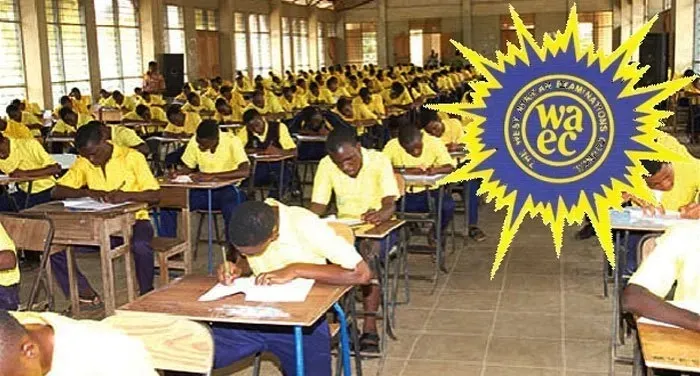The West African Examinations Council (WAEC) has filed a stay of execution following a ruling by a High Court that mandated the immediate release of withheld results for candidates who sat for the 2024 West African Senior Secondary School Certificate Examination (WASSCE).
The court ruled that WAEC had failed to specify the alleged malpractices or examination irregularities that led to the withholding of the results. The ruling has sparked a legal battle, as WAEC seeks to appeal the decision.
The case, filed by four students representing 10,520 affected candidates, led to the High Court’s decision on January 30, 2024. The applicants had sought an order for WAEC to release their results, which had been withheld without clear justification. In its ruling, the court found that WAEC had not provided sufficient evidence or detailed reasons for the withholding, making it an unfair action.
The decision has far-reaching implications, as WAEC is now seeking a stay of execution while it considers its legal options for an appeal. Meanwhile, The Head of Legal Affairs from WAEC Rev. Victor Brew provided a stance on the situation. He stated;
“We are yet to get a copy of the ruling. We need to study it as lawyers and then respond appropriately. The court’s decision was based on facts, and courts can always look at their own rulings.’’
Rev. Victor Brew Head of Legal Affairs, WAEC
Despite the ruling, WAEC has filed a stay of execution pending the outcome of the appeal.
Legal Reaction to WAEC
The lawyer representing the applicants, Martin Kpebu, expressed his disappointment in WAEC’s decision to file a stay of execution. Kpebu emphasized;
“This decision by WAEC is traumatizing, depressing, and shattering for these students. The pressure and stress are unnecessary.’’
Martin Kpebu
He criticized WAEC for its failure to provide specific charges or evidence against the students whose results were withheld. Kpebu also shed light on the bureaucratic delays in obtaining the court’s ruling. He stated that they have been proactive in trying to get a copy of the ruling. However, they were told that a notice of appeal had been filed instead of an application for a stay of execution.
The lawyer further explained that despite repeated efforts, WAEC’s documentation has not been made available, causing further delays in the legal process.
Legal Implications

The case hinges on the principle of fairness outlined in the Ghanaian Constitution. According to Kpebu, WAEC’s actions violate the legal rights of the students. He added;
“In Article 23 of the Constitution and Article 296, administrative bodies such as WAEC have to act fairly and reasonably. But here is the case, WAEC has withheld the results but they’ve not been able to give the exact reason they are withholding the results. Today they say ‘examination malpractice’, tomorrow they say ‘examination irregularities‘ – they’ve not been able to find exactly what the students did wrong.”
Martin Kpebu
Kpebu’s frustration is rooted in the lack of transparency and the failure of WAEC to uphold constitutional provisions for due process. He highlighted that WAEC has not pinned any specific charges against the affected candidates yet.
In the wake of WAEC’s legal move, Kpebu hinted at the possibility of taking further action should the examination body fail to comply with the court’s ruling. The lawyer mentioned that discussions with his clients would take place soon to decide the next course of action.
The legal complexities surrounding this case involve both procedural and substantive issues. Kpebu clarified the distinction between a “ruling” and a “judgment” in the legal context. While the media often refers to court decisions as “rulings,” Kpebu emphasized that in legal terms, a “judgment” refers to a final decision made by the court. “A ruling is something else,” he explained. He added;
“We filed on the 10th of January, 2025, and by the 30th in 20 days we were done. The court is done. So, if WAEC has any problem they may go to Court of Appeal but that doesn’t mean they shouldn’t release the results.”
Martin Kpebu
Beyond the immediate legal battle, the case also raises broader concerns about the integrity of the examination system in Ghana. Kpebu acknowledged the importance of upholding high standards in education but also cautioned against arbitrary decisions that harm innocent students. He further stressed the need for additional resources and measures to ensure that the examination system operates transparently and fairly.
As WAEC’s appeal process unfolds, the affected students, their families, and the wider public continue to watch closely. The case serves as a reminder of the importance of fairness and transparency in administrative actions, particularly those with life-changing consequences.
The coming days will likely determine whether WAEC will comply with the court’s decision or whether the legal battle will continue. For now, the fate of the affected students remains in limbo, as they await WAEC’s next move and the court’s ruling on the stay of execution.
READ ALSO; Asake Shares Reason For His Face Tattoos























